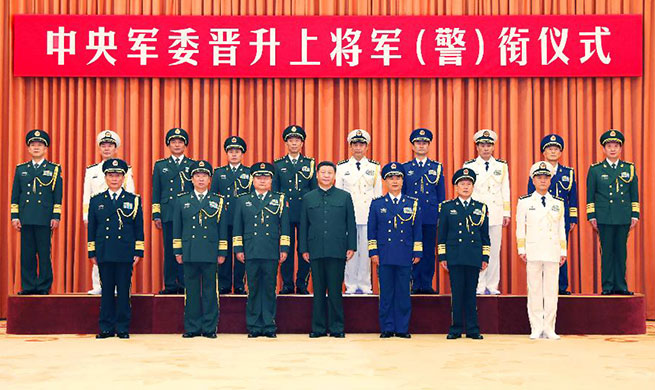LOS ANGELES, July 31 (Xinhua) -- Researchers at the University of California, Irvine (UC Irvine), have developed a way for human brain immune cells, known as microglia, to grow and function in mice, which offers an unprecedented view of crucial mechanisms contributing to Alzheimer's.
The breakthrough also holds promise for investigating many other neurological conditions such as Parkinson's, traumatic brain injury, and stroke, according to a university release on Wednesday.
The study was published in the journal Neuron on Tuesday.
The scientists dedicated four years to devising the new rodent model, which is considered "chimeric." The word, stemming from the mythical Greek monster Chimera, describes an organism containing at least two different sets of DNA.
To create the specialized mouse, the team generated induced pluripotent stem cells, or iPSCs, using cells donated by adult patients.
Once created, iPSCs can be turned into any other type of cell. In this case, the researchers coaxed the iPSCs into becoming young microglia and implanted them into genetically-modified mice.
Examining the rodents several months later, the scientists found about 80 percent of the microglia in their brains was human, opening the door for an array of new research.
"Microglia are now seen as having a crucial role in the development and progression of Alzheimer's," said Mathew Blurton-Jones, research team leader and associate professor of neurobiology and behavior at UC Irvine.
"Recent research has identified over 40 different genes with links to Alzheimer's and the majority of these are switched on in microglia," he said. "However, so far we've only been able to study human microglia at the end stage of Alzheimer's in post-mortem tissues or in petri dishes."
"This specialized mouse will allow researchers to better mimic the human condition during different phases of Alzheimer's while performing properly-controlled experiments," said Jonathan Hasselmann, one of the two neurobiology and behavior graduate students involved in the study.

















